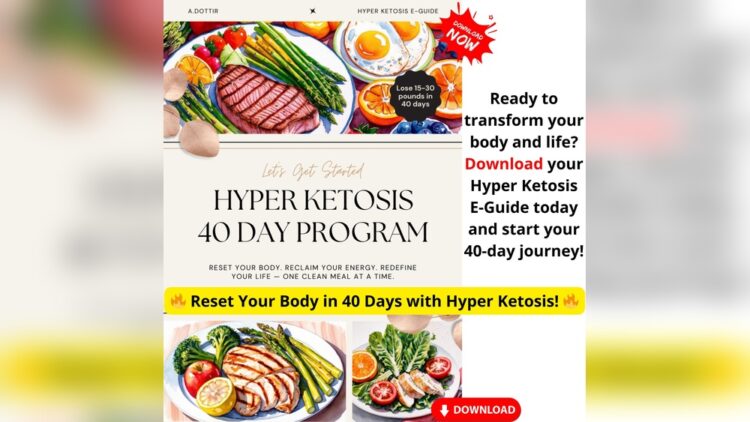Weight loss can be achieved without consuming red meat, as it is not an essential component for losing weight. By avoiding red meat and focusing on a balanced diet of fruits, vegetables, lean proteins, and whole grains, you can effectively achieve your weight loss goals.
Cutting out red meat can reduce your intake of saturated fats, which may aid in weight loss efforts. Additionally, opting for plant-based proteins can provide essential nutrients while being lower in calories and fat. Incorporating other lean protein sources, such as poultry, fish, beans, and legumes, can also contribute to a healthy and effective weight loss journey without red meat.
The Rise Of Meatless Diets
The Rise of Meatless Diets is a phenomenon that has gained significant traction in recent years. As people become increasingly aware of the impact of their dietary choices on their health and the environment, many are opting to reduce or eliminate meat consumption.
The Popularity Of Vegetarian And Vegan Diets
Vegetarian and vegan diets have experienced a surge in popularity in recent times, with people embracing the idea of eating a plant-based diet. Vegetarianism involves abstaining from consuming meat, while veganism takes it a step further by excluding all animal products from one’s diet.
✓ Health-conscious individuals are choosing vegetarian and vegan diets as they provide an abundance of nutrients while being low in saturated fats and cholesterol.
Packed with vitamins, minerals, antioxidants, and dietary fiber, plant-based diets offer a range of health benefits. Moreover, many vegetarians and vegans find that their plant-based eating habits contribute to weight loss, improved digestion, and increased energy levels.
✓ Vegetarian and vegan blogs and social media accounts have gained massive followings, encouraging more people to try a meatless lifestyle.
The widespread availability of online resources dedicated to vegetarian and vegan lifestyles has played a vital role in the rising popularity of these diets. Blogs, social media accounts, and YouTube channels dedicated to meatless living offer recipe ideas, nutritional insights, and support to those looking to make the switch.
Health Benefits Of A Meatless Diet
Embracing a meatless diet can have numerous positive effects on one’s health. Here are some key health benefits to consider:
- Reduced risk of chronic diseases such as heart disease, high blood pressure, and certain types of cancer.
- Lower chances of developing obesity and associated health issues.
- Improved digestion and gut health due to increased fiber intake from plant-based foods.
- Enhanced nutrient intake with a focus on diverse fruits, vegetables, whole grains, legumes, and nuts.
- Better weight management and potential for weight loss due to decreased consumption of high-calorie, fatty meats.
By adopting a meatless diet, individuals have the opportunity to optimize their health and well-being while contributing to a more sustainable planet. It’s no wonder that more and more individuals are choosing to explore the possibilities of a meat-free lifestyle.
The Connection Between Red Meat And Weight Gain
Are you struggling to lose weight but find that those extra pounds just won’t budge? It may be time to take a closer look at your diet and consider the impact of red meat consumption. While red meat is a popular choice for many people, research has shown a strong connection between red meat and weight gain. In this article, we will explore the reasons behind this connection and how eliminating red meat from your diet can support your weight loss goals.
Red Meat And High Caloric Intake
One of the major factors contributing to weight gain is an excessive caloric intake. Red meat, such as beef, pork, and lamb, is known for its high caloric value. Just a small serving of red meat can pack a significant number of calories, making it easy to consume more calories than your body needs. These extra calories are then stored as fat, leading to weight gain.
Consider this:
| Red Meat | Calories per 100g |
|---|---|
| Beef | 250 |
| Pork | 275 |
| Lamb | 295 |
As you can see, just 100g of red meat can easily contribute hundreds of calories to your daily intake, which can quickly add up and hinder your weight loss efforts.
The Impact Of Saturated Fat
In addition to the high caloric content, red meat is also high in saturated fat. Saturated fat is a type of fat that tends to raise levels of “bad” cholesterol in the body, leading to an increased risk of cardiovascular disease and obesity. When consumed in excess, saturated fat can contribute to weight gain and hinder weight loss progress.
Instead of red meat, consider incorporating lean protein alternatives such as chicken, turkey, fish, or plant-based proteins like lentils and beans. These options provide similar nutritional benefits without the excess calories and saturated fat found in red meat.
Red Meat And Increased Risk Of Obesity
Multiple studies have linked red meat consumption to an increased risk of obesity. High intake of red meat has been associated with higher body mass index (BMI) and greater waist circumference. The reasons behind this association are multifactorial, including the high caloric content and saturated fat content of red meat, as well as potential hormonal influences.
- Excessive consumption of red meat can disrupt appetite hormones, leading to overeating and weight gain.
- The heme iron present in red meat may affect the metabolism and storage of fat in the body.
- Processed red meats, such as bacon and hot dogs, contain additives and preservatives that may contribute to weight gain and obesity.
By reducing or eliminating red meat from your diet, you can help reduce the risk of obesity and support your weight loss journey.
Plant-based Proteins For Weight Loss
Discover the power of plant-based proteins to aid weight loss. By eliminating red meat from your diet and incorporating alternatives such as legumes, tofu, and quinoa, you can achieve your weight loss goals while enjoying a nutritious and satisfying meal plan.
Plant-Based Proteins for Weight LossMaking the decision to eliminate red meat from your diet can have a significant impact on your weight loss journey. Not only does it reduce your calorie and saturated fat intake, but it also opens the door to exploring a world of nutritious and delicious plant-based proteins. Let’s dive into the benefits of replacing red meat with plant-based proteins and the nutritional value they offer for weight loss.
Replacing red meat with plant-based proteins
replacing red meat with plant-based proteins, you can lower your calorie intake while still meeting your protein needs. Plant-based options such as legumes, tofu, tempeh, and seitan are excellent substitutes. These alternatives offer similar textures and flavors, making the transition easier.
Nutritional value of plant-based proteins
Plant-based proteins are rich in essential nutrients that fuel your weight loss journey. Legumes like lentils and chickpeas are packed with fiber, iron, and folate. Tofu and tempeh are low in saturated fatcalcium and manganese. Additionally, seitan is a high-protein, low-fat alternative that also contains selenium and phosphorus.
Benefits of plant-based proteins for weight loss
Choosing plant-based proteins can bring multiple benefits to your weight loss goals. First and foremost, they are lower in calories compared to red meat. These proteins also contain healthy fats and no cholesterol, reducing the risk of heart disease. Furthermore, plant-based proteins can increase satiety and control hunger cravings, making it easier to stick to your calorie goals.
plant-based proteins have numerous advantages for weight loss. They provide essential nutrients while helping you reduce your overall calorie and saturated fat intake. These options can be just as delicious and satisfying as red meat, offering a tasty and sustainable way to achieve your weight loss goals. So why not give them a try and explore the world of plant-based proteins today?
The Role Of Fiber In A Meatless Diet
The Role of Fiber in a Meatless Diet
Eating a meatless diet can be a fantastic way to achieve weight loss goals, and incorporating fiber-rich foods into your meals is crucial for maximizing the health benefits. Fiber not only aids in digestion but also plays a significant role in keeping you feeling full and satisfied. In this article, we’ll explore how high-fiber foods can promote weight loss, the connection between fiber and appetite control, and provide you with a list of delicious fiber-rich substitutes for red meat.
High-fiber Foods And Weight Loss
Summary: High-fiber foods are beneficial for weight loss due to their ability to promote satiety and reduce calorie intake.
When seeking to shed those unwanted pounds, incorporating high-fiber foods into your diet can be a game-changer. Foods rich in fiber require more chewing, slow down the digestive process, and can help control blood sugar levels. This suppression of hunger hormones makes you feel full for longer, reducing the temptation to indulge in unhealthy snacks and ultimately contributing to weight loss.
Eating a diet that is abundant in high-fiber foods can also lead to a decreased energy density of meals. This means that you can consume larger portions of low-calorie, nutrient-dense foods without consuming excessive calories. Focusing on whole grains, legumes, fruits, and vegetables can provide you with adequate fiber intake while supporting your weight loss efforts.
Fiber And Appetite Control
Summary: Fiber helps control appetite by increasing feelings of fullness, reducing overeating tendencies.
Fiber offers appetite control benefits by increasing feelings of fullness and reducing overeating tendencies. When consumed, fiber absorbs water, expanding in your stomach and triggering stretch receptors that send signals to your brain, indicating that you are satisfied and no longer hungry.
Fun fact: High-fiber foods generally require more chewing, which can also contribute to a greater sense of satisfaction.
Furthermore, high-fiber foods often have a lower energy density compared to their counterparts. This means that you can consume larger volumes of these foods without the excess calories, helping you stay within your weight loss goals.
Fiber-rich Substitutes For Red Meat
Summary: Substituting red meat with fiber-rich alternatives ensures you meet your nutritional needs while promoting weight loss.
Red meat is often high in unhealthy saturated fats and can contribute to weight gain. Fortunately, there are plenty of delicious and nutritious fiber-rich substitutes you can incorporate into your diet to ensure you get the necessary nutrients while supporting weight loss.
Consider introducing the following fiber-rich alternatives:
- Beans and legumes: Chickpeas, lentils, and black beans are excellent sources of fiber and plant-based protein.
- Whole grains: Quinoa, brown rice, and whole wheat pasta provide your body with fiber, vitamins, and minerals.
- Vegetables: Broccoli, Brussels sprouts, and carrots are packed with fiber, low in calories, and provide a host of other health benefits.
- Fruits: Apples, berries, and pears are loaded with fiber and can satisfy your sweet cravings naturally.
- Nuts and seeds: Incorporating chia seeds, flaxseeds, and almonds into your diet not only adds fiber but also healthy fats and essential nutrients.
By making these fiber-rich substitutes part of your meatless diet, you can enjoy delicious meals while promoting weight loss, improving digestion, and supporting overall well-being.
Tips For Transitioning To A Meatless Diet
Transitioning to a meatless diet can be a healthy and fulfilling choice for many people. Cutting out red meat from your meals not only reduces your carbon footprint but also offers a variety of health benefits, such as weight loss. To make the transition easier, here are some helpful tips to guide you along the way.
Gradual Reduction Of Red Meat Consumption
If you’re used to consuming red meat regularly, it can be overwhelming to suddenly eliminate it from your diet. Instead of going cold turkey, consider gradually reducing your red meat consumption. Start by designating specific days of the week where you will not eat red meat. Over time, increase the number of meatless days until you’re comfortable with a completely meatless diet.
Exploring New Protein Sources
Protein is an essential nutrient that can be found in various plant-based foods. As you transition to a meatless diet, it’s important to explore alternative sources of protein. Include foods such as tofu, tempeh, lentils, chickpeas, and quinoa in your meals. These plant-based options not only provide ample protein but also offer a range of vitamins, minerals, and dietary fiber to keep you feeling satisfied and energized throughout the day.
Creating Balanced Meatless Meals
When removing red meat from your diet, it’s crucial to ensure your meals remain balanced and provide all the necessary nutrients. A well-rounded meatless meal should include a combination of protein, carbohydrates, healthy fats, and vegetables. Incorporate a variety of fruits and vegetables to get a wide range of vitamins and minerals. Consider using a table to illustrate how to create a balanced meatless plate:
| Protein | Carbohydrates | Healthy Fats | Vegetables |
|---|---|---|---|
| Tofu | Brown rice | Avocado | Kale |
| Chickpeas | Quinoa | Nuts and seeds | Broccoli |
| Lentils | Whole wheat pasta | Olives | Spinach |
By incorporating a variety of these food groups, you can ensure your body receives a well-balanced meal without relying on red meat.
Transitioning to a meatless diet is an exciting journey that opens doors to new flavors and culinary experiences. By gradually reducing your red meat consumption, exploring alternative protein sources, and creating balanced meatless meals, you’ll be on your way to a sustainable and healthy lifestyle.
Frequently Asked Questions For Weight Loss No Red Meat
Can I Lose Weight By Cutting Out Red Meat From My Diet?
Yes, you can lose weight by cutting out red meat from your diet. Red meat is high in calories and saturated fats, so avoiding it can help you reduce your calorie intake and improve your overall health.
What Are Some Good Alternatives To Red Meat For Weight Loss?
There are several good alternatives to red meat for weight loss. You can substitute red meat with lean proteins like chicken, turkey, fish, tofu, or legumes such as lentils and beans. These alternatives are lower in calories and saturated fats, making them a healthier choice for weight loss.
Will Eliminating Red Meat From My Diet Lead To Nutrient Deficiencies?
Eliminating red meat from your diet does not automatically lead to nutrient deficiencies. However, red meat is a good source of iron and vitamin B12, so it’s important to ensure you’re getting these nutrients from other sources like leafy greens, fortified cereals, and supplements if needed.
Consulting with a healthcare professional can help create a well-balanced diet plan.
Conclusion
To sum up, eliminating red meat from your diet can be a beneficial step towards achieving weight loss goals. By choosing alternative protein sources and incorporating a balanced diet, you can optimize your health and well-being. Remember, small changes can lead to significant results, so start making healthier choices and watch the pounds melt away.
{ “@context”: “https://schema.org”, “@type”: “FAQPage”, “mainEntity”: [ { “@type”: “Question”, “name”: “Can I lose weight by cutting out red meat from my diet?”, “acceptedAnswer”: { “@type”: “Answer”, “text”: “Yes, you can lose weight by cutting out red meat from your diet. Red meat is high in calories and saturated fats, so avoiding it can help you reduce your calorie intake and improve your overall health.” } } , { “@type”: “Question”, “name”: “What are some good alternatives to red meat for weight loss?”, “acceptedAnswer”: { “@type”: “Answer”, “text”: “There are several good alternatives to red meat for weight loss. You can substitute red meat with lean proteins like chicken, turkey, fish, tofu, or legumes such as lentils and beans. These alternatives are lower in calories and saturated fats, making them a healthier choice for weight loss.” } } , { “@type”: “Question”, “name”: “Will eliminating red meat from my diet lead to nutrient deficiencies?”, “acceptedAnswer”: { “@type”: “Answer”, “text”: “Eliminating red meat from your diet does not automatically lead to nutrient deficiencies. However, red meat is a good source of iron and vitamin B12, so it’s important to ensure you’re getting these nutrients from other sources like leafy greens, fortified cereals, and supplements if needed. Consulting with a healthcare professional can help create a well-balanced diet plan.” } } ] }









Leave a Reply